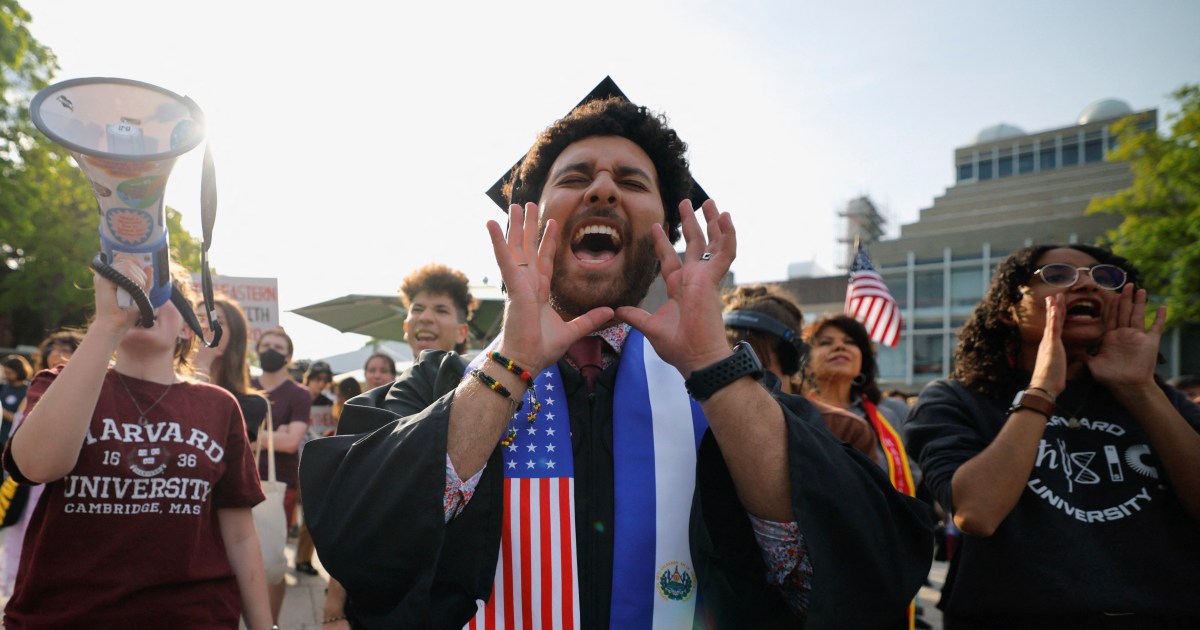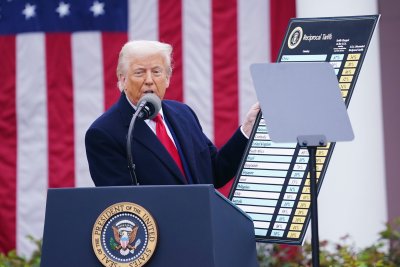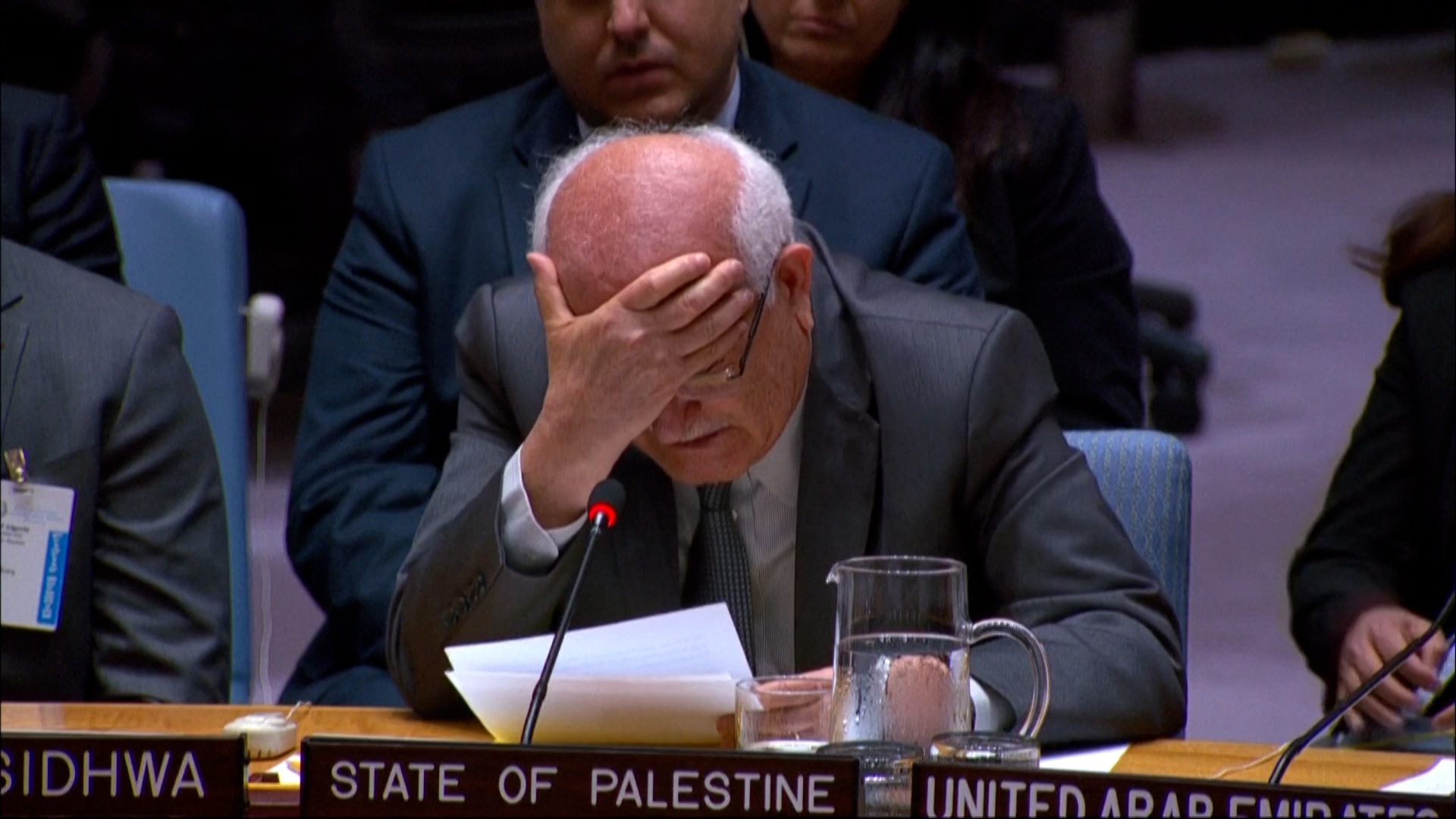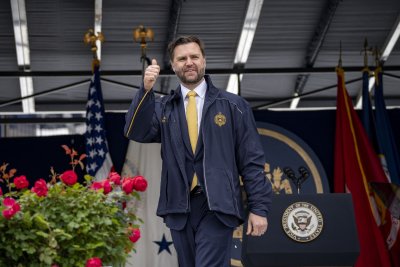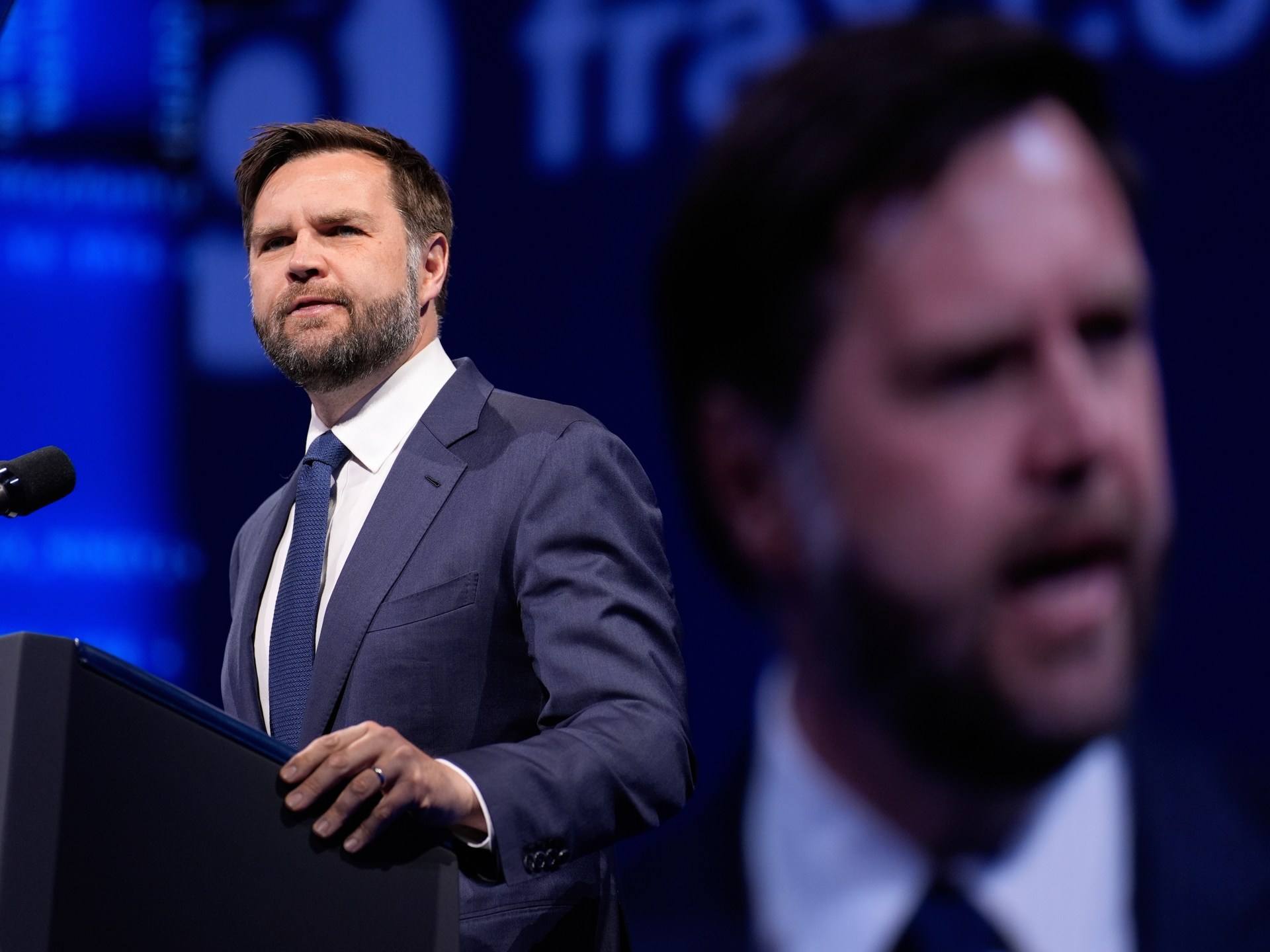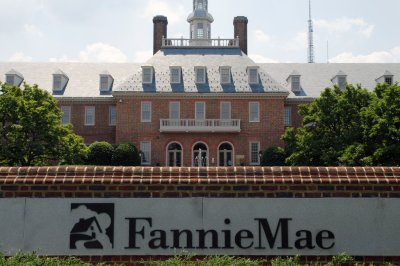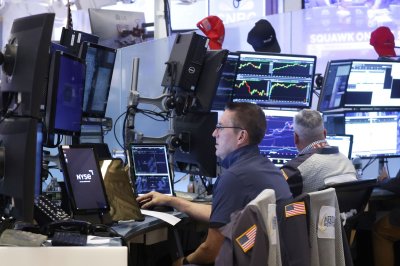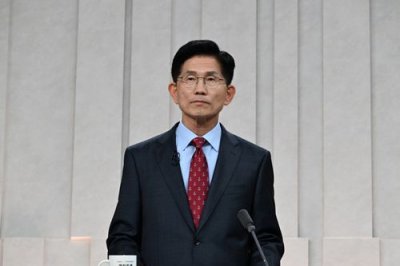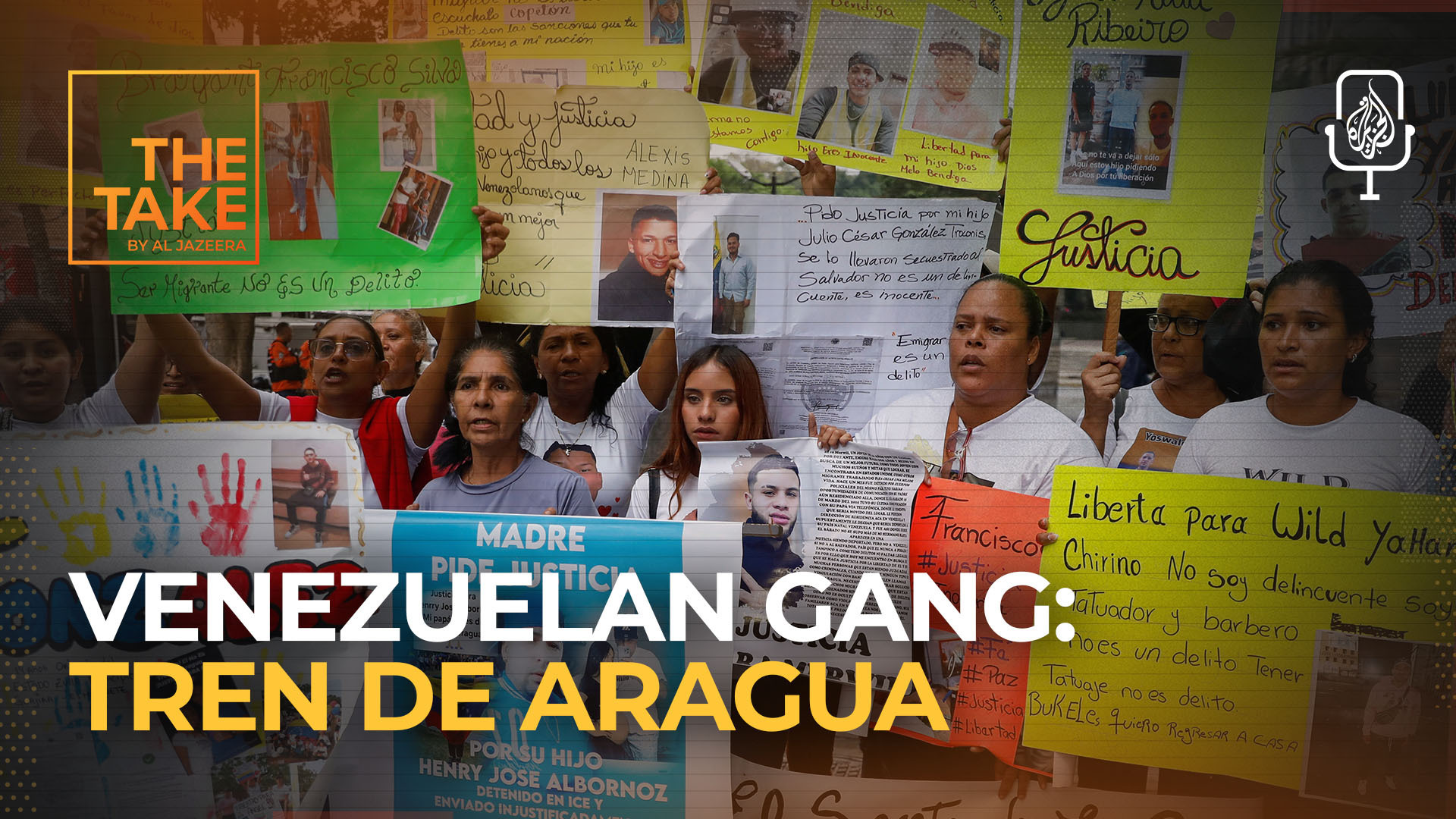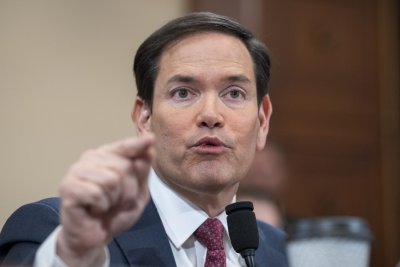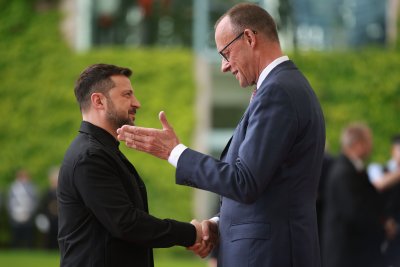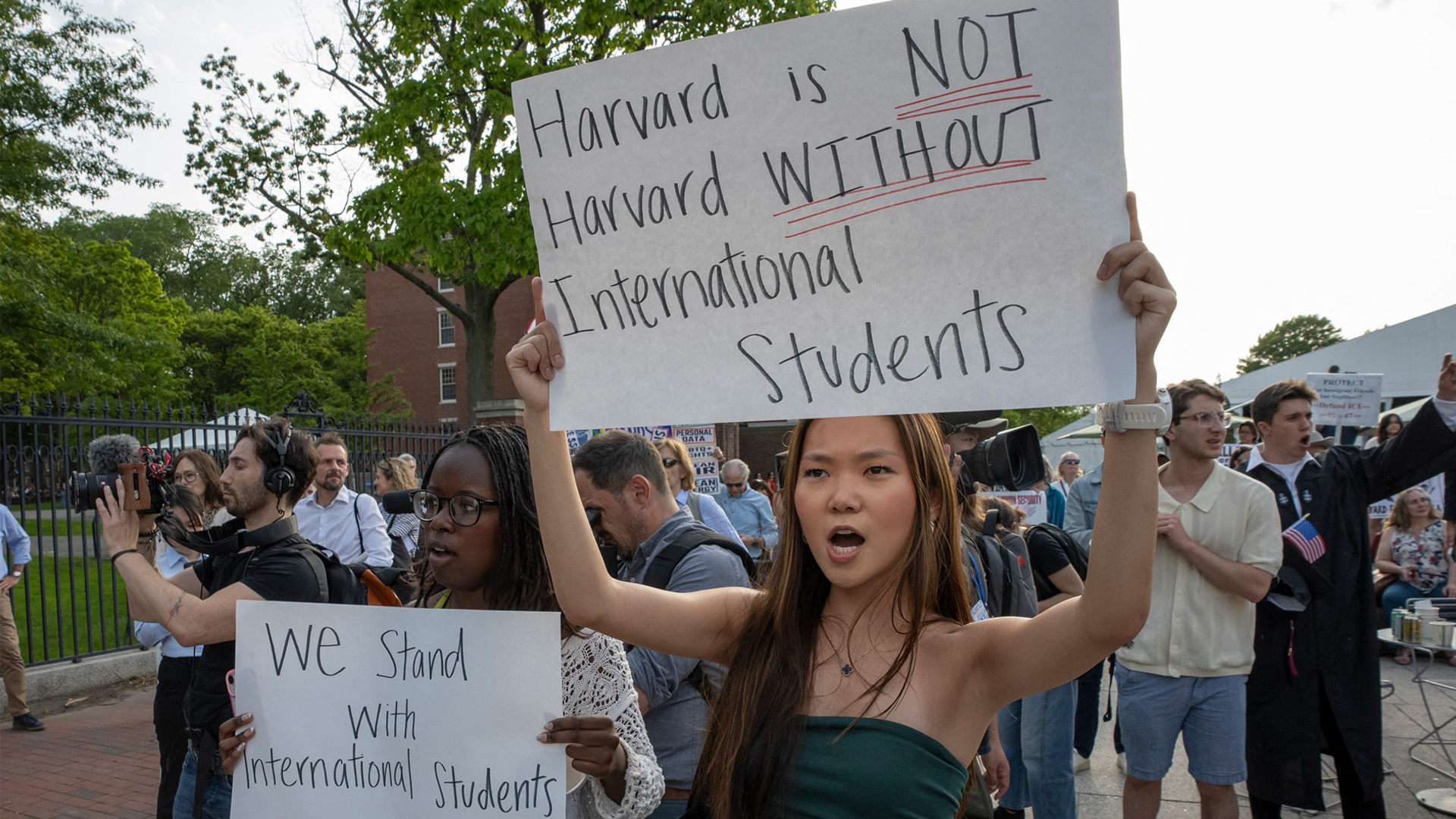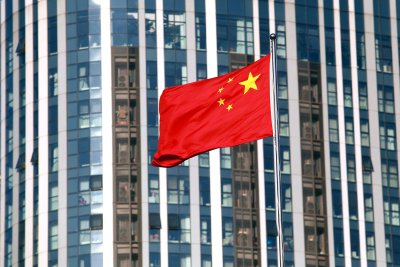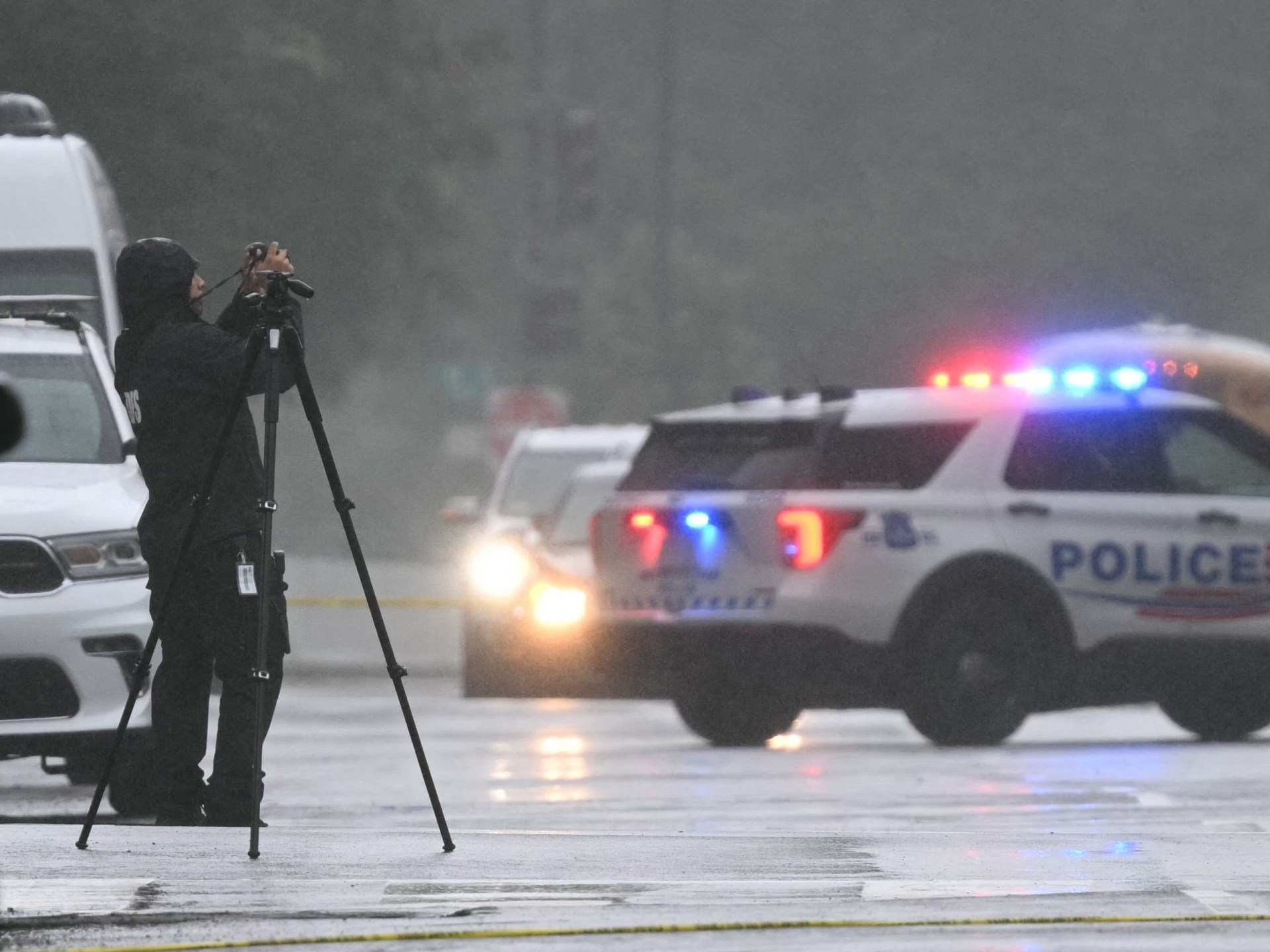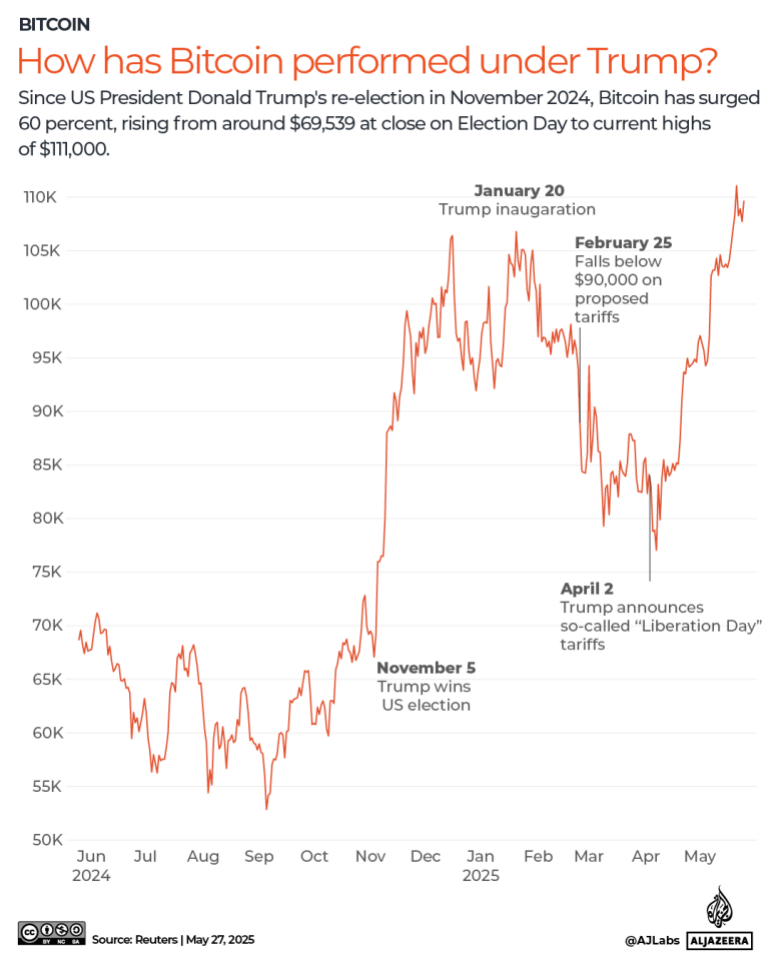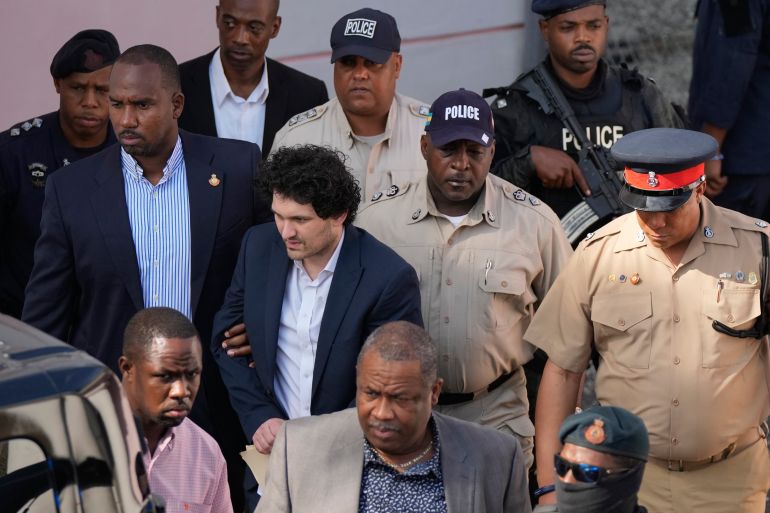Trump says Harvard should cap foreign enrollment, provide student list | Donald Trump News
US president says Harvard must ‘show us their list’ of foreign students to make sure they are not ‘troublemakers’.
United States President Donald Trump has intensified his dispute with Harvard University, saying the college should cap foreign enrolments and share information with the government about its international students.
“Harvard has to show us their lists. They have foreign students, almost 31 percent of their students. We want to know where those students come from. Are they troublemakers? What countries do they come from?” Trump told reporters at the White House on Wednesday. According to university enrolment data, foreign students make up 27 percent of Harvard’s student body.
“I think they should have a cap of maybe around 15 percent, not 31 percent,” Trump said, adding that he wants universities to accept “people who are going to love our country”.
The Trump administration has sought to pressure Harvard into compliance on a number of demands, including greater control over the university’s curricula, information about foreign students and further steps to crack down on pro-Palestine student activism, which the administration has characterised as anti-Semitic.
“Harvard has got to behave themselves. Harvard is treating our country with great disrespect, and all they’re doing is getting in deeper and deeper,” Trump told reporters in the Oval Office.
The university has resisted what it says is an effort to erode its independence from the government and commitment to academic freedom.
The Trump administration has severed grants worth billions of dollars to Harvard and announced that it would revoke Harvard’s ability to enrol international students entirely. The Department of Homeland Security said that order was a response to Harvard “fostering violence, antisemitism, and coordinating with the Chinese Communist Party”.
The university said in a statement at the time that the order was part of a “series of government actions to retaliate against Harvard for our refusal to surrender our academic independence and to submit to the federal government’s illegal assertion of control over our curriculum, our faculty, and our student body”.
The university swiftly challenged the order in court, and it was temporarily blocked by a judge on Friday.
Patricia McGuire, president of Trinity Washington University, said on Wednesday that Trump’s actions against foreign enrolment at US universities “makes no sense”.
“It’s so irrational because higher education is one of the top US exports to the world and the international students who come to this country enrich American universities immensely and take their knowledge back to all of their countries around the globe for the improvement of their countries and their populations,” McGuire told Al Jazeera from Washington, DC.
However, McGuire said Trump’s actions are consistent with “an administration that has literally snatched students off the street and taken them to detention centres”, referring to Tufts University student Rumeysa Ozturk, who was forcibly taken into custody by masked federal agents in broad daylight on a street near her Massachusetts home in March.
This month, a court ordered the release of the 30-year-old Turkish doctoral student from the custody of the Immigration and Customs Enforcement agency.
“This is, in my view, completely anti-American values, and I think many academics are horrified by the fact that students are now being censored for their viewpoints,” McGuire said.
